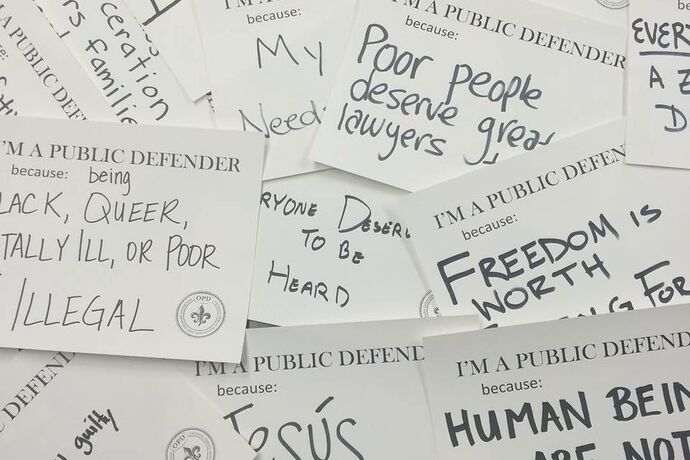Ensuring Access to Justice in a COVID-19 Hotspot
November 6, 2020

The coronavirus pandemic effectively shut down New Orleans' criminal justice system on March 16—courts closed as a result of the citywide lockdown and the public defender’s office, which is largely funded by traffic tickets, also stared down a significant budget shortfall. Meanwhile, New Orleans grew to be a coronavirus hotspot, leading to an increase risk for clients who remained in jail if an outbreak happened in the prison. TFA alum Colin Reingold (GNO '03), who serves as the litigation director and senior counsel at Orleans Public Defenders, and his team were at the forefront of ensuring that the city’s highest-need clients continued to have access to legal counsel.
Originally from Pennsylvania, Colin moved to New Orleans and joined Teach For America in 2003, after graduating from Yale University. Teaching English at Edna Karr, he was continually struck by his students’ personal lived experiences—and the ways that different systems, including housing, education, and criminal justice, were set up to prevent them from succeeding. After completing Teach For America, he went to law school at the University of Michigan, and joined the Orleans Public Defenders in 2010 as a special litigation staff attorney.
When the pandemic began and courts began to close, Colin and his team immediately pivoted to figuring out how to advocate for their clients, release clients from jail who didn’t need to be there, and keep people who committed minor crimes out of jail in order to decrease unsafe and unnecessary interactions with police and the prison system.
“Being arrested and jailed for a minor crime shouldn’t be a death sentence, but with the way the virus spreads in jails, that’s a big risk.”
“The jail was already disproportionately occupied by people of color, and the police disproportionately patrol and arrest in minority communities,” Colin says. “The pandemic heightens the risks associated with these activities: Being arrested and jailed for a minor crime shouldn’t be a death sentence, but with the way the virus spreads in jails, that’s a big risk.”
His team pushed the police to issues summons for minor offenses instead of making an arrest. They also immediately figured out how to keep going to “court” and advocated for the release of hundreds of clients—some of whom were still in jail simply because they couldn’t afford a bail bond.
“The jail is at the lowest occupancy number that it’s been in decades,” Colin says. “It shouldn’t have taken a pandemic to help people see that so many of our neighbors are needlessly incarcerated, but I’ll take silver linings where I can get them.”

In addition, Colin saw the pandemic and state-wide shutdown disproportionately impact high-need communities in ways that were largely invisible to others, stretching people who were barely making ends meet before even further.
“Even simple things for some people—like getting a stimulus check—require hoop-jumping that’s hard for a lot of folks,” he says. “If you didn’t pay taxes recently, you need to know where to go and what to do to get assistance, which requires internet or a working phone and the know-how to navigate all those things. And the time that takes is time you’re not focusing on family, or health, or safety.”
As we move into the next phase of the pandemic, a big challenge that Colin sees is safely restarting the court systems, because “an unsafe trial during a pandemic will just mean uncomfortable and unwilling jurors, which could lead to unfair on inaccurate outcomes.”
He expressed optimism that the pandemic and the new national conversation around policing have created opportunities for community-wide change.
“We’re seeing the beginning of an understanding that the status quo for the last decades of criminal policy has been doing real damage to communities,” Colin says. “The upcoming criminal legal system elections for DA and judges are a real opportunity for the city to start a new chapter in how to conceptualize public safety for the next decade. Change can start locally!”


